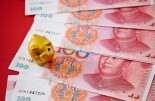Roland van den Brink: Increasing irrationality China poses risks
Roland van den Brink: Increasing irrationality China poses risks

This column was originally written in Dutch. This is an English translation.
By Roland van den Brink, Founder of TrigNum
In China, the risk of irrational financial and economic policies being implemented is reaching worrying proportions. This has global consequences and it is advisable to be sufficiently flexible in the investment policy.
Since 2004, I have been visiting China every year, where I have spoken to many local asset managers. For the last three years, the meetings took place online due to Covid, but fortunately that special period is now over. These local asset managers increasingly tell me that China has changed dramatically in the last three years and that the country is facing economic problems that are reminiscent of the Japan crisis (1995) in scale. Given the size of China, this will affect the entire world.
1) Problems are becoming more and more visible
Financially and economically things are going worse in China than leaders hoped: exports are sputtering, deflation is lurking, (youth) unemployment is rising, and the Chinese currency is falling against the US dollar. One of the reasons is that the over-indebtedness of the real estate sector has led to payment problems among major players. According to Gavekal Research, this amounts to more than 350 billion euros in unpaid bills. In China, real estate accounts for approximately 30% of the economy (GDP) and 70% of household wealth is in bricks and mortar.
However, there is a more far-reaching trend: a sharp decline in confidence in the future and in the government. A major problem in China is that young people are educated, but have no work. Youth unemployment reached another record high of over 20% in August 2023, as a record number of university graduates entered the labor market. Loans have been taken out for the education or the savings (of the parents) have been used. Having an income is therefore necessary for many.
Unemployment in the group of 25-59 year olds is also above 4% and is deteriorating further. Due to Covid, the difficult labor and housing market, and an increasingly regulatory government, consumer confidence has fallen significantly since 2022. The working and living attitude has changed. In the press you read anecdotal stories about Chinese young people who want to work less and social media mainly encourages cutting back: no longer going to the expensive gym, but practicing at home using a video.
2) From rational to irrational policy?
Every five years, the Communist Party of China makes plans and, since the country opened its doors again, only a few have not been implemented or have been poorly implemented. In one generation, hundreds of millions of poor Chinese have become middle class.
However, current problems and geopolitical tensions lead to interventions that are increasingly less rational. Unwelcome figures, such as those on youth unemployment, are no longer published. Clothing must conform to the political ideal, in order to protect culture. The use of the iPhone by civil servants is discouraged. People with constructive criticism, such as the pro-China businessman Lew Mon-hung from Hong Kong, suddenly disappear from the scene. Large sums of money are made available to push forward problems and controlling the media is increasingly becoming an obsession.
The government has less and less control, with the result that policy is becoming less and less financially and economically rational. We see this pattern often. Recent examples are Turkey and Venezuela. US and European trade restrictions worsen the situation, increasing the risk of irrational policies.
More broadly, China has reached the end of the road when it comes to its debt-fueled economic model. Aging population, savings surpluses, low growth, low inflation, low interest rates, but also irrational policies, are also the future for China. Given the positive trade balance, the government can continue the support policy for a while, but even a rich country like Japan has ultimately succumbed to reality.
3) The impact is global
About 13% of the profits of the 200 largest companies worldwide come from China. The Middle Kingdom has a serious flu and - given its economic size - it is contagious. In addition, countries and companies are faced with significantly higher interest costs. The space to make policy has decreased significantly. Cutbacks are being made because the aging population is also making itself felt in our Western world.
The risk of irrationality in the policies of many countries increases partly due to elections, which can change the political winds. Less rational policies reduce citizens' confidence and that is not economically beneficial. Together with current valuations, this limits the return on business investments.
4) The medium term
Am I a pessimist? No. China has a lot to offer, such as a good work ethic and the will to get ahead. New technologies such as artificial intelligence and robotization, but also the shift to a more service-oriented society, will have increasing influence in this country. But the next two years will probably be financially and economically difficult for all of us. 'How to pay attention to, and what to do in the event of, increasing irrationality' appears to be a useful paragraph in the upcoming Investment Plan. Partly because of the accrued interest - and the intrusion into pension funds - it is wise to critically assess the weighting in commercial values and have a policy to quickly adjust weightings.
This article contains a personal opinion from Roland van den Brink









